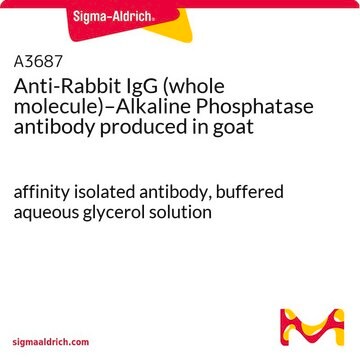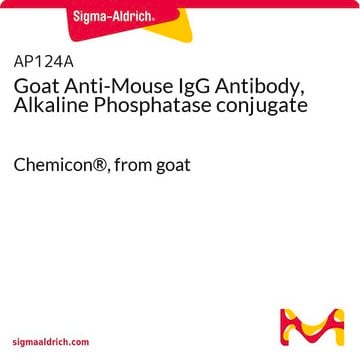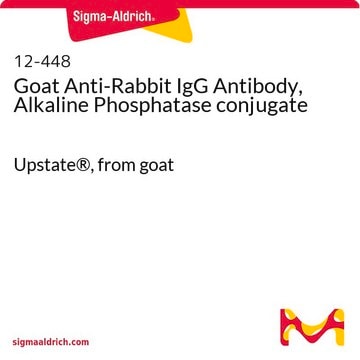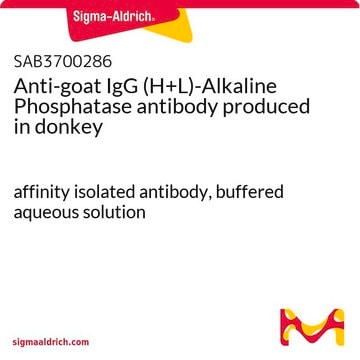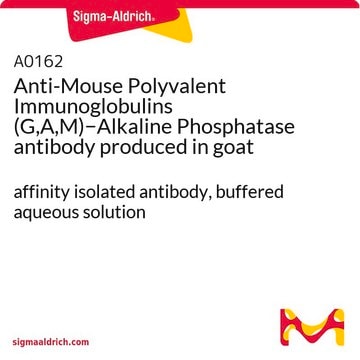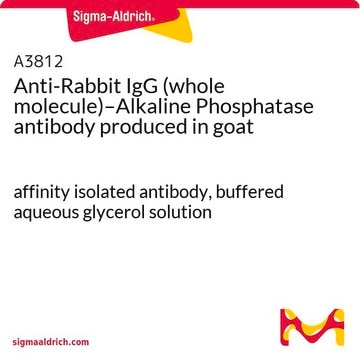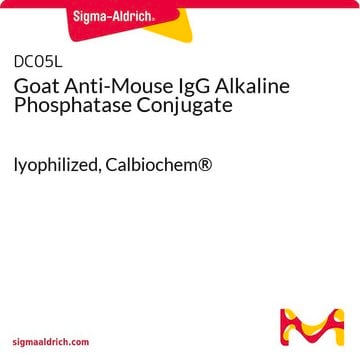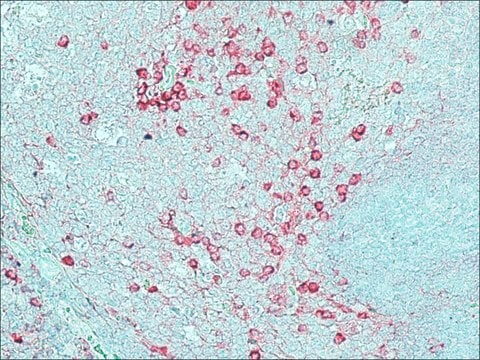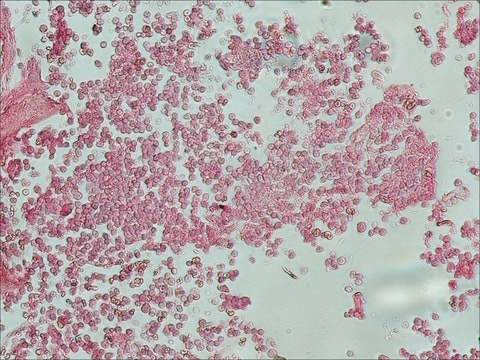A9316
Anti-Mouse IgG (whole molecule)−Alkaline Phosphatase antibody produced in goat
affinity isolated antibody, buffered aqueous glycerol solution
Synonym(s):
Goat Anti-Mouse IgG (whole molecule)−AP
About This Item
Recommended Products
biological source
goat
conjugate
alkaline phosphatase conjugate
antibody form
affinity isolated antibody
antibody product type
secondary antibodies
clone
polyclonal
form
buffered aqueous glycerol solution
technique(s)
direct ELISA: 1:30,000
immunohistochemistry (formalin-fixed, paraffin-embedded sections): 1:50
western blot: 1:30,000
shipped in
wet ice
storage temp.
2-8°C
target post-translational modification
unmodified
Looking for similar products? Visit Product Comparison Guide
Related Categories
General description
Application
- histological studies in heart and liver grafts
- immunohistochemical studies of gangliosides and immunostaining of lymphoid organs
- western blot detection in blood samples
Biochem/physiol Actions
Other Notes
Physical form
Preparation Note
Disclaimer
Not finding the right product?
Try our Product Selector Tool.
Storage Class Code
10 - Combustible liquids
WGK
WGK 2
Flash Point(F)
Not applicable
Flash Point(C)
Not applicable
Certificates of Analysis (COA)
Search for Certificates of Analysis (COA) by entering the products Lot/Batch Number. Lot and Batch Numbers can be found on a product’s label following the words ‘Lot’ or ‘Batch’.
Already Own This Product?
Find documentation for the products that you have recently purchased in the Document Library.
Customers Also Viewed
Our team of scientists has experience in all areas of research including Life Science, Material Science, Chemical Synthesis, Chromatography, Analytical and many others.
Contact Technical Service
